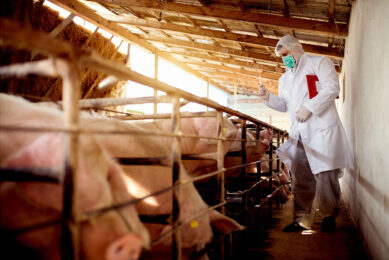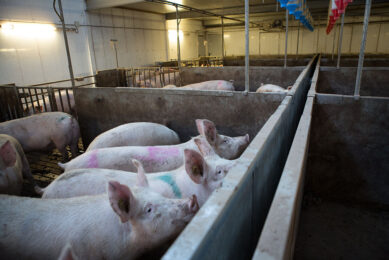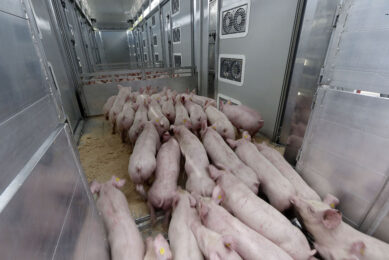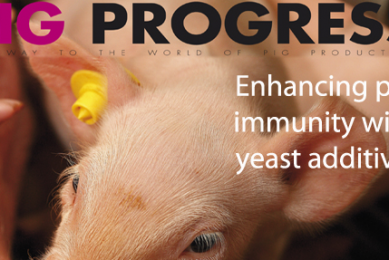Amino acid deletion in the E protein of PEDV causes attenuation
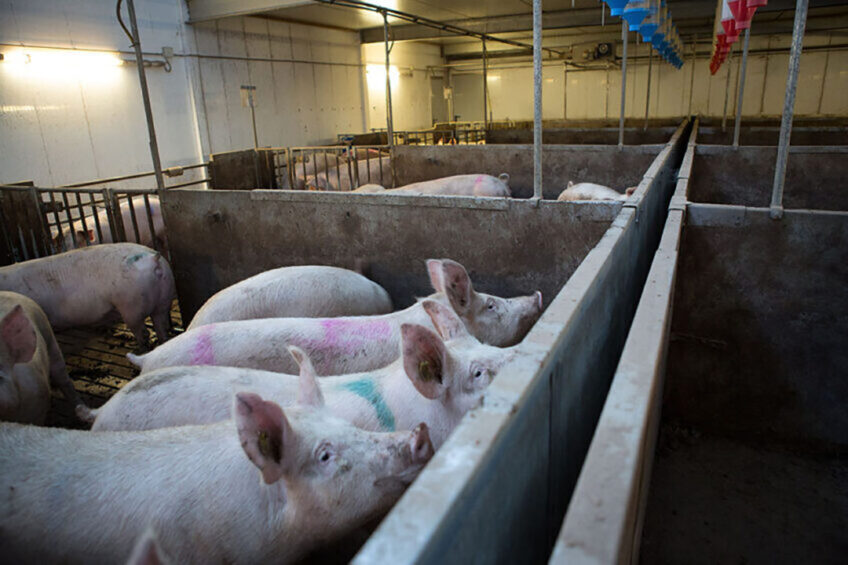
Researchers from China recently generated the recombinant PEDV strain with a 7-amino acid deletion in the E protein, to design a live attenuated PEDV vaccine.
The available commercial vaccines agaist PEDV have failed to fully protect against the epidemic strains. The PEDV envelope protein (E protein) affects the viral cycle and virulence and contributes to the development of diarrhea in piglets. Therefore, modifying virulent genes can help to develop safe and effective live attenuated PEDV vaccines.
Data collection
The researchers isolated the CH/SX/2015 strain of PEDV. They also constructed 2 recombinant strains (rCH/SX/2015 and rCH/SX/2016-SHNXP). The team also constructed the recombinant strain rPEDV-EΔaa23–aa29, using the rCH/SX/2016-SHNXP strain as the backbone. They did this to explore the effect of amino acid deletion at positions 23-29 of the E protein on viral behaviour.
They detected the effect of the EΔaa23–aa29 mutation on viral behaviour in MARC145 cells and Lilly Laboratories cell-porcine kidney 1 epithelial cells. The team performed real-time-qPCR assay to measure the genomic RNA copies. They randomly divided 10 piglets into 3 groups. These piglets were negative for transmissible gastroenteritis virus, PEDV, porcine delta coronavirus, and rotavirus. At 2 days of age, they orally inoculated the piglets with a dose of rCH/SX/2015 or rCH/SX/2016-SHNXP, or they mock inoculated them with Dulbecco’s Modified Eagle Medium.
The team randomly divided 21 piglets into 3 groups. These piglets were negative for transmissible gastroenteritis virus, PEDV, porcine delta coronavirus, and rotavirus. The team orally inoculated piglets in the challenge group with rCH/SX/2016-SHNXP (parental) and rPEDV-EΔaa23–aa29 (recombinant) strains. They inoculated the negative control group with an equal volume of Dulbecco’s Modified Eagle Medium.
The researchers monitored the piglets for clinical signs of disease and weight gain. They collected rectal swabs to determine viral RNA shedding copies and the interferon-β levels. In addition, they scored diarrhea severity as: 0 = solid; 1= pasty; 2 = semiliquid (mild diarrhea); and 3 = liquid (severe diarrhea). The team collected blood samples and detected the serum anti-PEDV N IgG. Finally, they euthanised 4 piglets, and fixed tissues for histopathological examination.
Virulence of rCH/SX/2015 vs. rCH/SX/2016-SHNXP strains
Piglets challenged with rCH/SX/2016-SHNXP showed a 100% diarrhea rate, weight loss, and thin, transparent gut walls in postmortem examination. They all died within 2 days post inoculation. On the other hand, all piglets challenged with rCH/SX/2015 displayed no diarrhea signs with no mortality and weight loss. They had a normal gut wall in postmortem examination. These results suggest that rCH/SX/2015 is less virulent than the rCH/SX/2016-SHNXP strain.
Recombinant strain characteristics
The recombinant strain created smaller sizes of cytopathic effect and plaques than the parental strain. The recombinant strain exhibited a significantly lower infectious titer at any time point. Both parental and recombinant strains exhibited comparable expression levels of genomic RNA. This suggested that the mutation may not affect PEDV replication. The ratios of recombinant strain titers between the supernatants and the cell lysates reduced about 5 times compared to the parental strain. This indicated a significant decrease in the viral release and the infectivity of the recombinant strain.
Impact of the recombinant strain on immunity and gut
The recombinant strain induced higher expression levels of interferon-β, interferon-λ1, and interferon-λ3 than parental strain. The genomic RNA level of the recombinant strain was lower than the parental strain. Piglets inoculated with the recombinant strain had higher levels of anti-PEDV N IgG than piglets in the mock group. This suggested that the recombinant strain could provide protection against the challenge of virulent PEDV. Piglets inoculated with the recombinant strain showed lower viral fecal RNA shedding. The recombinant strain caused milder lesions to gut villi compared to the parental but more serious gut villi damage than the mock group.
Conclusions
The authors concluded that the PEDV E protein is a virulence factor. In addition, recombinant strain induces stronger interferon responses, causes milder gut lesions, and has less viral release and lower infectivity than the parental virus; however, it retains viral immunogenicity in piglets.



